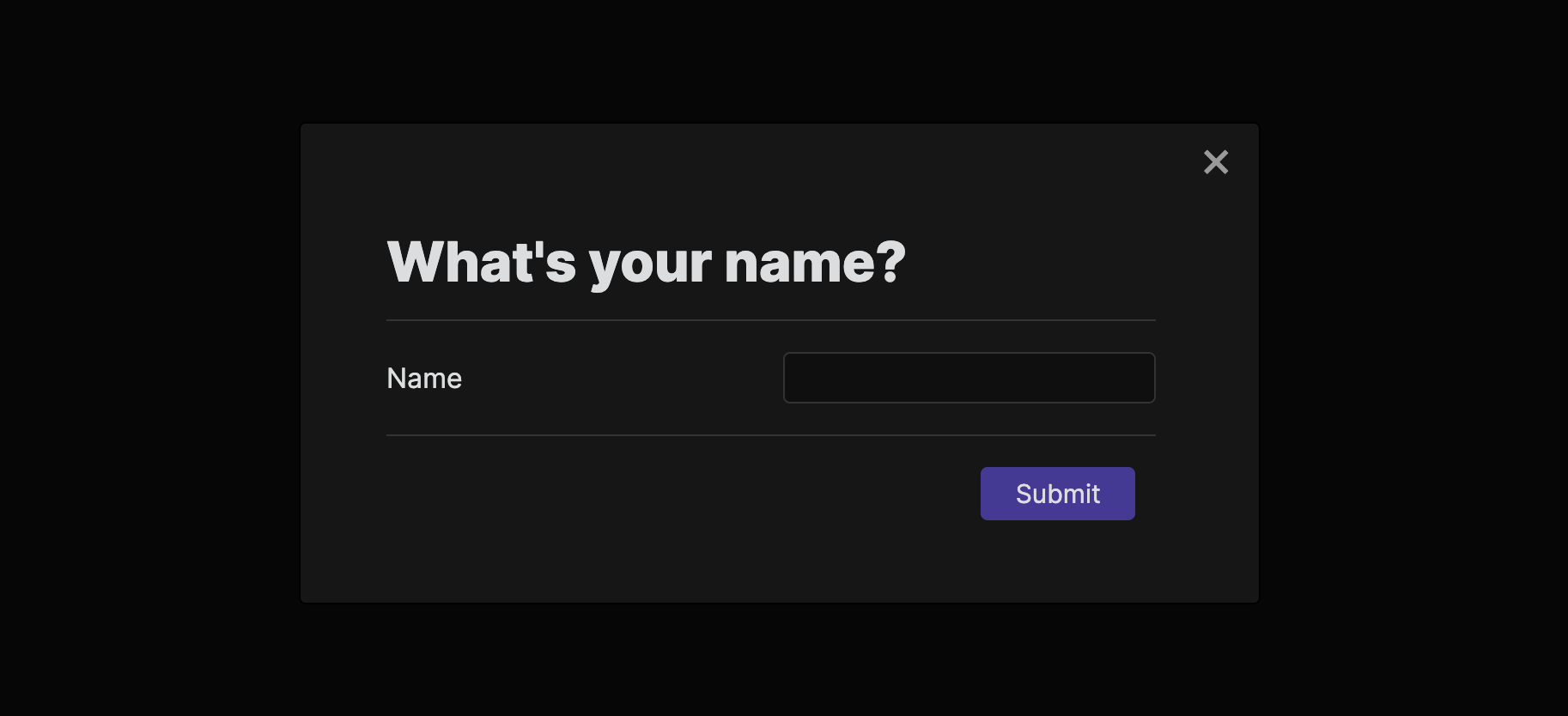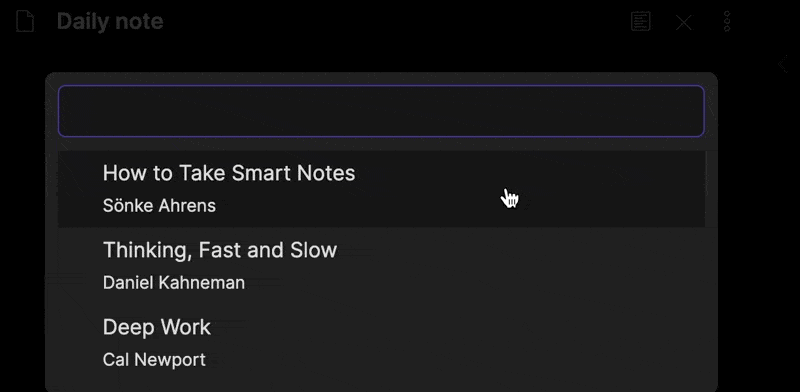Appearance
模态框
模态框显示信息并接受用户输入。要创建一个模态框,请创建一个扩展 Modal 的类:
ts
import { App, Modal } from "obsidian";
export class ExampleModal extends Modal {
constructor(app: App) {
super(app);
}
onOpen() {
let { contentEl } = this;
contentEl.setText("Look at me, I'm a modal! 👀");
}
onClose() {
let { contentEl } = this;
contentEl.empty();
}
}- onOpen() 在打开模态框时调用,负责创建模态框的内容。更多信息请参阅 HTML elements。
- onClose() 在模态框关闭时被调用,负责清理模态框使用的任何资源。
要打开模态框,请创建 ExampleModal 的新实例并调用 open() :
ts
import { Plugin } from "obsidian";
import { ExampleModal } from "./modal";
export default class ExamplePlugin extends Plugin {
async onload() {
this.addCommand({
id: "display-modal",
name: "Display modal",
callback: () => {
new ExampleModal(this.app).open();
},
});
}
}接受用户输入
上一个示例中的模态只显示了一些文本。让我们来看一个更复杂的示例,它可以处理用户的输入。

ts
import { App, Modal, Setting } from "obsidian";
export class ExampleModal extends Modal {
result: string;
onSubmit: (result: string) => void;
constructor(app: App, onSubmit: (result: string) => void) {
super(app);
this.onSubmit = onSubmit;
}
onOpen() {
const { contentEl } = this;
contentEl.createEl("h1", { text: "What's your name?" });
new Setting(contentEl)
.setName("Name")
.addText((text) =>
text.onChange((value) => {
this.result = value
}));
new Setting(contentEl)
.addButton((btn) =>
btn
.setButtonText("Submit")
.setCta()
.onClick(() => {
this.close();
this.onSubmit(this.result);
}));
}
onClose() {
let { contentEl } = this;
contentEl.empty();
}
}结果存储在 this.result 中,并在用户点击提交时通过 onSubmit 回调返回:
ts
new ExampleModal(this.app, (result) => {
new Notice(`Hello, ${result}!`);
}).open();从建议列表中选择
SuggestModal 是一种特殊的模式,可让您向用户显示建议列表。

ts
import { App, Notice, SuggestModal } from "obsidian";
interface Book {
title: string;
author: string;
}
const ALL_BOOKS = [
{
title: "How to Take Smart Notes",
author: "Sönke Ahrens",
},
{
title: "Thinking, Fast and Slow",
author: "Daniel Kahneman",
},
{
title: "Deep Work",
author: "Cal Newport",
},
];
export class ExampleModal extends SuggestModal<Book> {
// Returns all available suggestions.
getSuggestions(query: string): Book[] {
return ALL_BOOKS.filter((book) =>
book.title.toLowerCase().includes(query.toLowerCase())
);
}
// Renders each suggestion item.
renderSuggestion(book: Book, el: HTMLElement) {
el.createEl("div", { text: book.title });
el.createEl("small", { text: book.author });
}
// Perform action on the selected suggestion.
onChooseSuggestion(book: Book, evt: MouseEvent | KeyboardEvent) {
new Notice(`Selected ${book.title}`);
}
}除了 SuggestModal 之外,Obsidian API 还为建议提供了一种更为专业的模式: FuzzySuggestModal。虽然它不能让您对每个项目的呈现方式进行相同的控制,但您可以获得开箱即用的模糊字符串搜索 fuzzy string search 。

ts
export class ExampleModal extends FuzzySuggestModal<Book> {
getItems(): Book[] {
return ALL_BOOKS;
}
getItemText(book: Book): string {
return book.title;
}
onChooseItem(book: Book, evt: MouseEvent | KeyboardEvent) {
new Notice(`Selected ${book.title}`);
}
}